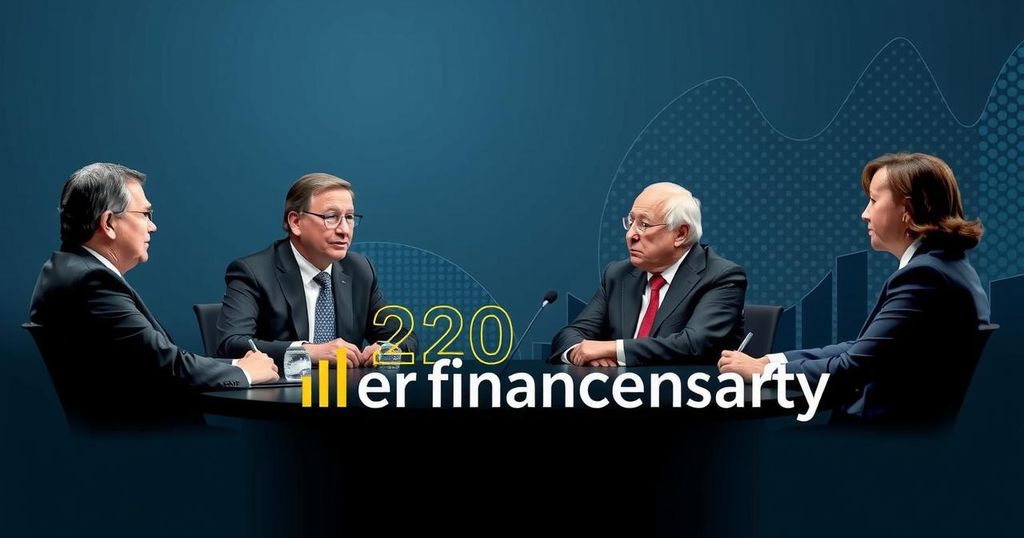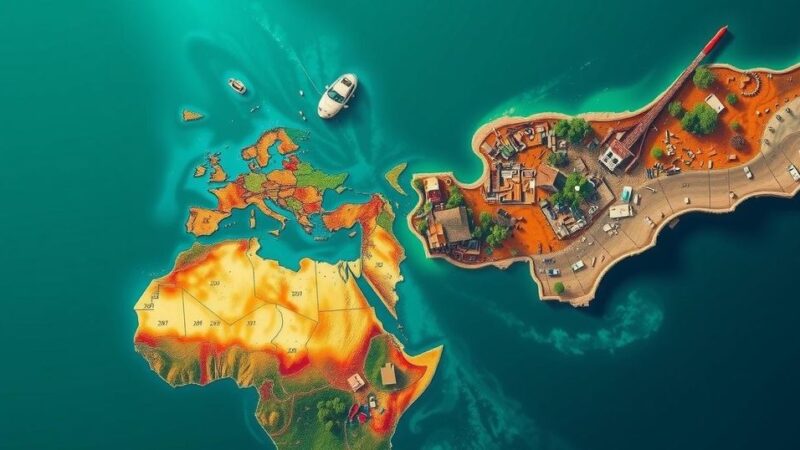The UN warns that G20 leaders must provide substantial climate finance to poorer countries at their Rio de Janeiro meeting, or risk severe economic fallout. Financing for combating climate change remains a critical discussion point amid stalled negotiations at COP29. Strong calls for international cooperation and debt relief underscore the urgency of addressing the climate crisis and supporting economically vulnerable nations.
The United Nations has issued a dire warning regarding the critical necessity for G20 leaders to secure essential funding for the world’s poorest nations to combat climate change, lest they face severe economic repercussions. Convening in Rio de Janeiro, the G20 nations must address urgent financial commitments as climate negotiations at the ongoing COP29 summit remain stalled. UN Climate Chief Simon Stiell emphasizes the imperative of collaborative action: without substantial funding and cooperation, the detrimental impacts of climate change on economies across the G20 could escalate into an irreversible crisis. The G20 meeting comes at a pivotal time as many developing countries seek a structured global financial agreement that could generate approximately $1 trillion annually by 2030. This figure is based on comprehensive research conducted by renowned economists, suggesting that while domestic budgets will contribute significantly, external financial support will play a crucial role. It is posited that half of this external aid should emerge from the private sector, while multilateral banks and innovative funding mechanisms will also need to supplement this amount. Moreover, the G20’s responsibility extends beyond climate finance to include discussions on debt relief for impoverished countries struggling with climate adaptation amidst rising debt servicing costs. As nations grapple with the economic ramifications of climate change, the call for solidarity and international cooperation is more pressing than ever. Despite the urgency of the discussions, attendance at the COP29 summit has been lackluster among G20 leaders, raising concerns about the commitment of powerful nations to climate action. As the Brazilian presidency prepares for the upcoming G20 deliberations, there is hope that the leaders will advocate for not just financial support for developing countries but also more ambitious emissions reduction targets to align with global climate commitments.
The climate crisis poses a significant challenge globally, threatening ecosystems, economies, and communities, particularly in poorer nations that are least equipped to cope with its impacts. The G20, comprised of the world’s largest economies, plays a crucial role in addressing climate finance, which is essential for enabling economically vulnerable countries to reduce greenhouse gas emissions and enhance resilience to climate change. The ongoing discussions at COP29 are indicative of the global urgency surrounding climate action and the financial mechanisms necessary to support it, reflecting both the interconnectedness of economies and the necessity for cooperative international solutions to shared challenges.
The United Nations has articulated a vital need for the G20 leaders to unify in providing climate finance to poorer nations, underscoring the connection between economic stability and climate action. With projections indicating significant financial requirements for the developing world, the urgency of these discussions at the G20 meeting cannot be overstated. As global cooperative efforts are deemed crucial for addressing the climate crisis, the actions taken by the G20 will be instrumental in determining the pathway toward a sustainable future.
Original Source: www.theguardian.com






